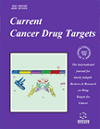
-
oa CD133+-Derived Exosomes Carrying EIF3B Mediate Cell Metastasis and Stemness in Colorectal Cancer
-
-
- 24 Sep 2024
- 12 Feb 2025
- 11 Jul 2025
Abstract
Colorectal cancer (CRC) is among the most widespread malignancies worldwide and is a leading cause for cancer mortality. The interstitial interaction between cancer and stem cells is important during cancer cell metastasis.
In this study, we aimed to elucidate the regulatory role and the underlying mechanisms controlling the activity of exosomes derived from cancer stem cells (CSCs).
Our group isolated exosomes from CSCs and non-CSCs to examine their regulatory mechanisms using Transwell migration, Cell Counting Kit-8 (CCK-8), and 5-ethynyl-2′-deoxyuridine (EdU) assays.
The role of Eukaryotic Translation Initiation Factor 3 Subunit B (EIF3B) in CRC was examined using an in vivo tumorigenesis mouse model. It was found that treatment with exosomes isolated from CD133+ cells (CD133+Exos) promoted the proliferation and migration of SW480 cells. The downregulation of EIF3B reduced the proliferation and migration-promoting effects of CD133+ Exos on SW480 cells. Furthermore, CD133+ Exos treatment promoted the tumorigenesis of SW480 cells.
Our findings demonstrate that CSC-derived exosomes transport EIF3B into CRC cells to initiate epithelial-to-mesenchymal transition (EMT) and promote metastasis.

